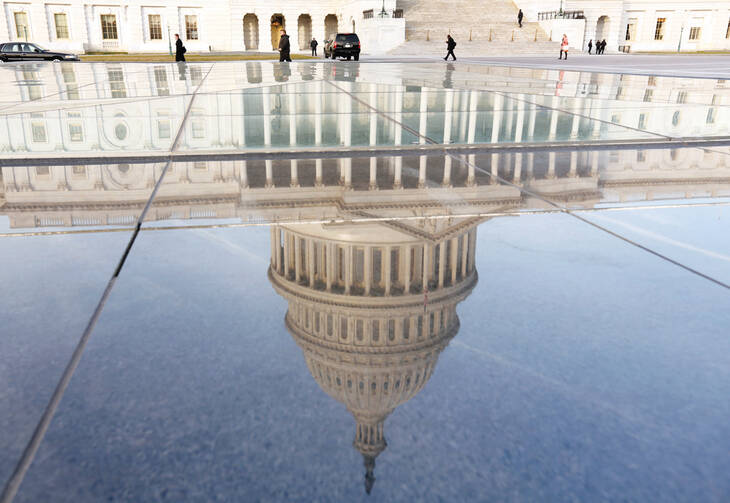The American Taxpayer Relief Act of 2012—and 2013, considering when the House of Representatives passed it—may be remembered as much for what it did not accomplish as for what it did. The legislation includes permanently lower income tax rates for an estimated 98 percent of Americans—that means no more sliding deadline for cuts originally enacted when George W. Bush was president. But no agreement was reached on how to deal with tax breaks and loopholes. There is a “doc fix” that avoids slashing the reimbursement rates doctors are paid for treating Medicare patients, but no “Sandy fix,” i.e., disaster relief aid for East Coast cities and states hit by Hurricane Sandy in late October.
The bill increases taxes on individuals making $400,000 a year and couples making $450,000 a year that will garner, by White House estimates, an extra $737 billion in revenue over the next 10 years. But the stopgap legislation did not include an increase of the nation’s $16 trillion debt ceiling, suggesting a new round of congressional brinkmanship over the national debt and federal deficits is not far off. The plan did manage to postpone sequestration, automatic budget cuts that go into effect if no long-term agreement is reached, for another two months.
The act “isn’t perfect,” said the Rev. David Beckmann, a Lutheran minister who is president of Bread for the World, an anti-hunger lobby. But, Beckmann added, the compromise legislation remains “a good deal that will prevent major economic damage that would have affected hungry and poor people the most.
“Budgets are moral documents. Their impact on those whom the Bible refers to as ‘the least of these’ tells the world what kind of country we are,” Beckmann said in a statement on Jan. 2. He said positive elements in the bill include a five-year extension on improvements made to the earned-income tax credit and child tax credit over the last decade and a one-year extension of emergency unemployment benefits, a measure that will affect an estimated two million out-of-work Americans.
Negotiated in the waning moments of 2012, the last-minute legislation also included a nine-month extension of the 2008 farm bill. That legislative maneuver was primarily aimed at preventing milk prices from doubling.
But that meant maintaining provisions of the old farm bill that agriculture advocates say are wasteful. Bob Gronski, a policy analyst for the National Catholic Rural Life Conference, said he was “disappointed with the lack of [subsidy] reform and the lack of money for conservation programs” in the extension.
All the same, Gronski allowed, “we were 36 hours away from going over the cliff. So Mitch McConnell and Joe Biden got together and did what had to be done.” Biden, who as U.S. vice president serves as president of the Senate, and McConnell, the Kentucky Republican and Senate minority leader, brokered the bill that passed 89 to 8 in the Senate and 257 to 167 in the House.
Anticipating the debt-ceiling battle to come, President Obama said late on Jan. 1, 35 minutes after the House’s 10:45 p.m. vote to pass the bill: “We can’t not pay bills that we’ve already incurred.
“If Congress refuses to give the United States government the ability to pay these bills on time, the consequences for the entire global economy would be catastrophic—far worse than the impact of a fiscal cliff.”








